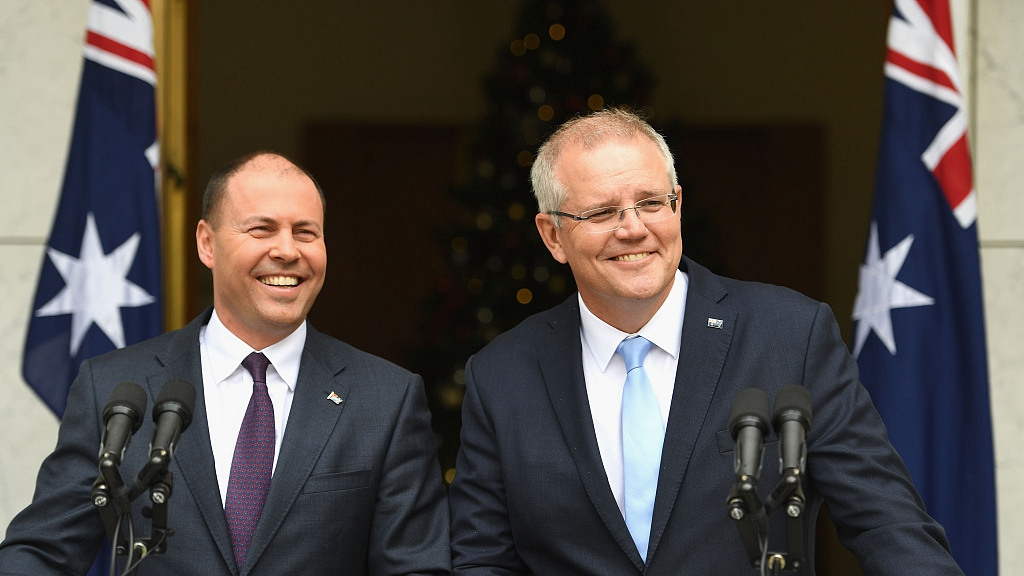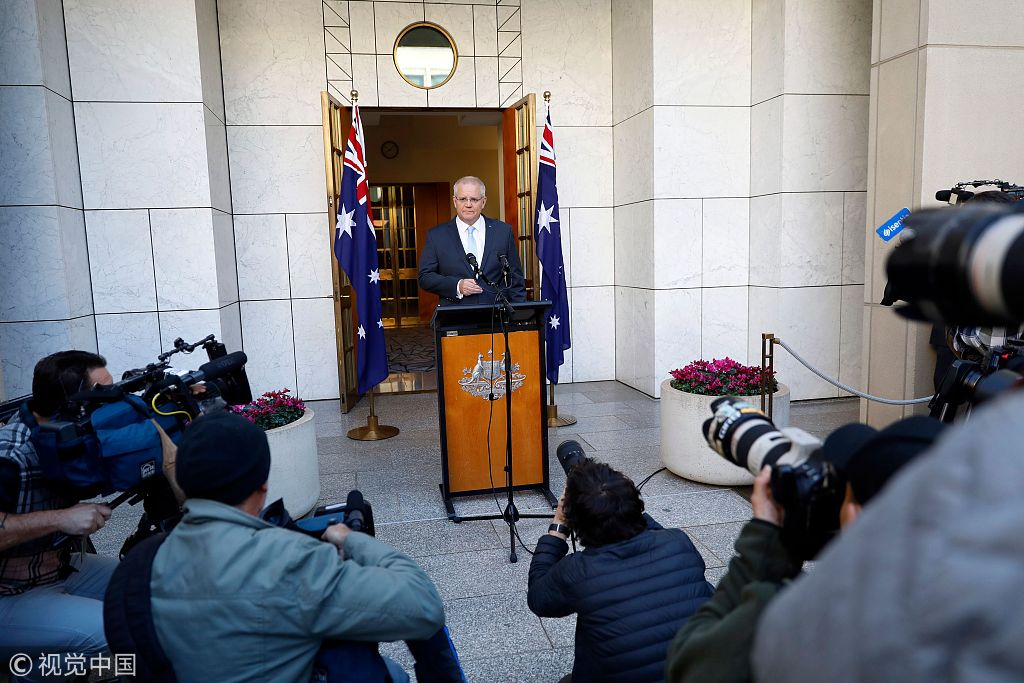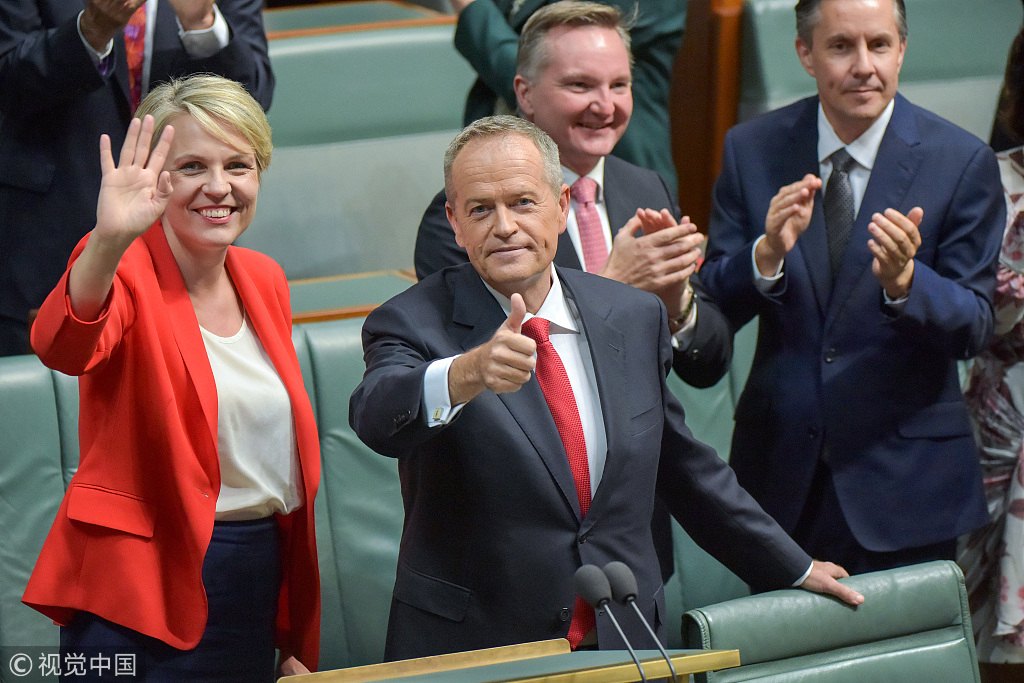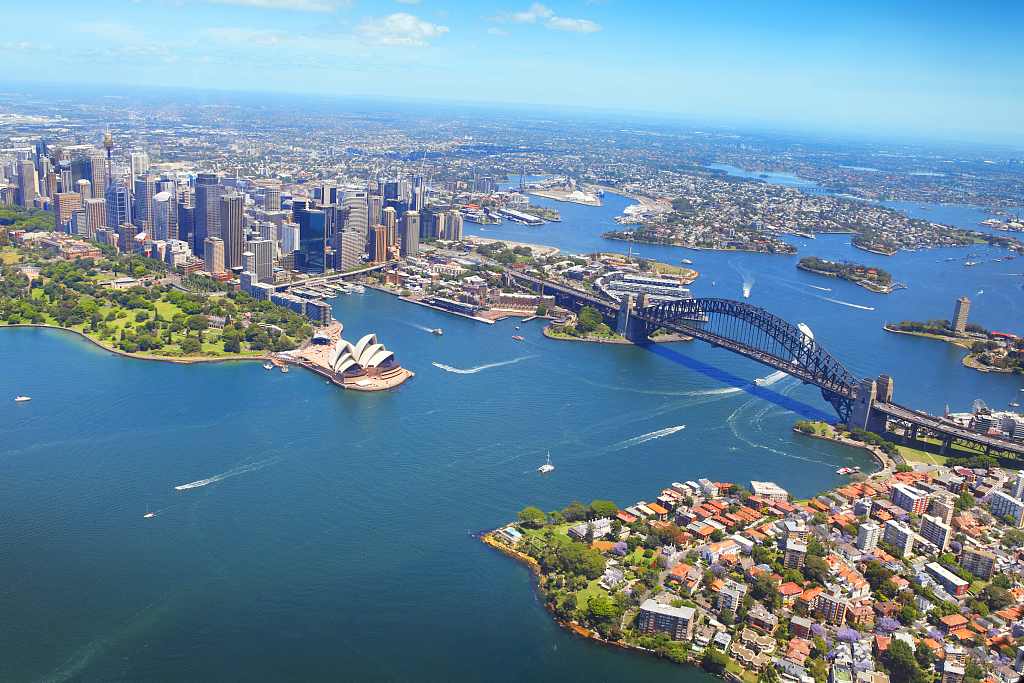
Opinion
10:58, 17-May-2019
What do Australian voters care about in 2019?
Updated
14:34, 19-May-2019
Chu Xiaoji

Editor's note: The article is written based on an interview with Australian Liberal candidate Scott Yung and Labor Party candidate Chris Gambian. The article reflects the interlocutors' opinions, and not necessarily those of CGTN.
Australia's federal election takes place on May 18 amid intense international political transformations.
Since the national polls in 2013, the Liberal Party has been the ruling party. This year, the Liberal Party leader, current Prime Minister Scott Morrison, will directly compete with his opponent, the Labor Party leader Bill Shorten.
Can Morrison defend the Liberal Party's ruling position of the past six years? Can Shorten help the Labor Party to regain the post of prime minister they lost in 2013? How will Australia's relationship with China develop? These puzzles will be solved one by one after the election.
Morrison's and Shorten's plans for Down Under
"This is one of the closest elections in the past 20 years. As we have seen in free debates between Prime Minister Scott Morrison and opposition leader Bill Shorten, there has been no clear winner.

Australian Prime Minister Scott Morrison speaks at a press conference at the Parliament House in Canberra, ACT, April 11, 2019. /VCG Photo
Australian Prime Minister Scott Morrison speaks at a press conference at the Parliament House in Canberra, ACT, April 11, 2019. /VCG Photo
"This is a choice between Scott Morrison, and Liberal government or a choice for Bill Shorten, and Labor government," Scott Yung, Australian Liberal Candidate for Kogarah, New South Wales (NSW) and president and founder of the Liberal Party China Council, told CGTN.
According to Yung, Morrison's vision for Australia is that of equal opportunities for everyone, based on a strong national economy.
"Scott Morrison is advocating that a strong economy is the fundamental to allow those to have a fair go," Yung told CGTN.
Chris Gambian, Labor Party candidate for Banks, NSW believes that a key focus area for this year's election is immigration policy and that Australia's Labor Party will offer more fairness to such a policy.
Australian voters' true concerns
Yung argues that most Aussies have an "Australian Dream," at the heart of which are two goals – owning property, which young people are more focused on, and retiring comfortably, which is what older Aussies want.

Bill Shorten (C), leader of Australia Labor Party, at the end of a budget reply speech in the House of Representatives at Parliament House in Canberra, Australian Capital Territory, Australia, April 4, 2019. /VCG Photo
Bill Shorten (C), leader of Australia Labor Party, at the end of a budget reply speech in the House of Representatives at Parliament House in Canberra, Australian Capital Territory, Australia, April 4, 2019. /VCG Photo
In recent years, as immigration has increased, Australia's property prices have rocketed, and it is increasingly hard for young people in big cities like Sydney, Melbourne and Brisbane to become property owners.
For middle-aged and older citizens, their concern is with various welfare issues, and the question of what they will be able to afford after retirement. As the Australian economy has been buffeted, some welfare benefits have been reduced, which is worrisome for older and vulnerable Aussies.
Yung says to realize the Australian Dream, it's vital for the new Australian government to be a strong and stable one. He says that the Liberal Party will guarantee continued economic growth. Yung argues that the party that can form a stable and robust government deserves to win the election. He believes the strength of the economy strongly determines this stability.
One of the Liberal's main promises this election is to raise the minimum wage to reward the hard workers across Australia. Gambian believes that the change is of crucial importance, suggesting that the current minimum wage is insufficient compared to the current cost of living.
"No person who works full time should be forced to live in poverty," Gambian posted on his Facebook page on March 29.
The challenges of the new government
Gambian believes one of the significant challenges Australia is facing is the tightening of its immigration policy. This will have a high impact on the multicultural society that Australia has built, which is also its foundation. He believes immigration plays a significant role in the development of Australia, especially economically. The new government should promote Australia as a multicultural society, ensuring the benefits of people of all different ethnic backgrounds. Therefore, how to promote social cohesion will be one of the major questions for the new government.
"Banks (Gambian's electoral district in NSW) has always been an area of a lot of migration, and as the community mix has changed, that's brought in new people to talk to and engage with and understand," Gambian told the Sydney Morning Herald.

A bird's-eye view of Sydney, New South Wales, Australia. /VCG Photo
A bird's-eye view of Sydney, New South Wales, Australia. /VCG Photo
"I see that as the job, not as something to struggle against," Gambian added.
Maintaining a good working relationship with China also needs to be the priority, whether it's Labor or the Liberals who are in charge.
According to Yung, Morrison once said that Australia has always been welcoming Chinese students, investors, and businesses. Both the Liberals and the Labor Party recognize the importance of good relations with China – one of the most important trade partners of Australia.
Despite some differences between Australia and China on specific issues, Yung is confident that a healthy relationship can be enjoyed in the future.
He suggests that a good personal rapport between the top leaders will be essential. In his opinion, no matter who takes office, he is supposed to build a close "mateship" with his Chinese counterpart to bring mutual benefits to both countries.
(If you want to contribute and have specific expertise, please contact us at opinions@cgtn.com.)

SITEMAP
Copyright © 2018 CGTN. Beijing ICP prepared NO.16065310-3
Copyright © 2018 CGTN. Beijing ICP prepared NO.16065310-3